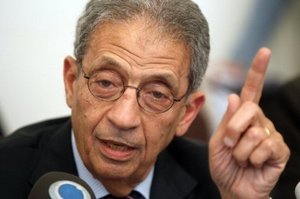Iranian airports resumed normal operations on Monday following the country’s large-scale military action against Israel, the Iranian Students’ News Agency (ISNA) reported. The move comes amid heightened tensions in the Middle East.
Tehran’s Mehrabad International Airport reopened at 5:30 AM local time on Monday, following a directive from the Civil Aviation Organization of Iran to lift flight suspensions, according to ISNA. Ebrahim Moradi, a member of the airport’s board of directors, confirmed the resumption of flights and their application to all other Iranian airports.
This comes as the Israeli war cabinet meeting concludes, without any details of its outcomes.
The war cabinet met to deliberate over the timing and scope of a response to Iran’s attack on Israel, the officials told CNN. In addition to a potential military response, the war cabinet is also mulling diplomatic options to further isolate Iran on the world stage.
Meanwhile, Iranian Foreign Minister Hossein Amir-Abdollahian defended the military operation in phone calls with his Russian and German counterparts. He emphasized to Russia’s Sergei Lavrov that the action aimed to deter Israel, punish them for the consulate attack, and serve as a warning. He added that any further Israeli aggression would be met with a “very severe response.”
In a separate call with German Foreign Minister Annalena Baerbock, Amir-Abdollahian described the operation as “minimal and accurate,” targeting Israeli military facilities responsible for the Damascus consulate strike. He criticized Germany’s support for Israel and threatened a “reciprocal, immediate, and extensive” response if Israeli aggression continues.
Israel, Iran trade blame at UN Security Council meeting
Tensions flared at the United Nations Security Council on Sunday as Israel and Iran exchanged accusations, each blaming the other for the recent escalation in the Middle East.
The emergency meeting, convened after a surprise attack by Iran on Israel, descended into a war of words.
Israeli Ambassador Gilad Erdan condemned Iran, calling it the “number one global sponsor of terror” and accusing it of destabilizing the region. He urged the Security Council to designate Iran’s Revolutionary Guards as a terrorist organization and impose sanctions “before it’s too late.”
Iran’s Ambassador Amir Saeid Iravani countered by invoking Iran’s right to self-defence, claiming the attack was a response to Israel’s actions.
He criticized the Security Council for failing to uphold international peace and security, particularly regarding the ongoing conflict between Israel and Gaza. He called for the council to address “the real threat” and take punitive measures against Israel for what he termed a “genocide against the people of Gaza.”
The Security Council meeting concluded without any concrete action. UN Secretary-General António Guterres called for both sides to de-escalate the situation, emphasizing that “neither the region nor the world can afford more war.”
Both the European Union and the Group of Seven echoed calls to prevent further escalation. European Council President Charles Michel stressed the necessity of avoiding bloodshed and pledged to monitor the situation closely with partners.
Egypt’s Foreign Minister Sameh Shoukry held phone calls with his counterparts in Iran, Israel, and the US on Sunday to prevent further tensions in the region.
Shoukry conveyed important Egyptian messages to the Israeli and Iranian foreign ministers stressing the need for de-escalation and preventing further sources of tension and instability in the region.
Israeli war cabinet ministers reportedly convened on Sunday to discuss a response, but a government source confirmed disagreements regarding timing and scale. While a majority reportedly favour a counterattack, details remain undecided.
Separately, the White House reiterated its lack of interest in war with Iran. US National Security Council official John Kirby, responding to a question on potential US support for an Israeli counterattack, affirmed the Biden administration’s opposition to war.
Following the Iranian attacks, countries like Iraq reopened their airspace. The Iraqi Civil Aviation Authority confirmed the reopening, citing the end of any risks affecting civil aviation security.


